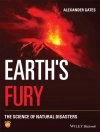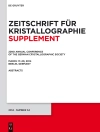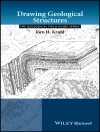Britain and Ireland have a remarkably varied geology for so small a fragment of continental crust, with a fine rock record back through three billion years of geological time. This history would have been interesting enough if it had been played out on relatively stable continental crust. However, Britain and Ireland have developed at a tectonic crossroads, on crust once traversed by subduction zones and volcanic arcs, continental rifts and mountain belts. The resulting complexity is instructive, fascinating and perplexing.
Geological History of Britain and Ireland tells the region’s story at a level accessible to undergraduate geologists, as well as to postgraduates, professionals or informed amateurs. This second edition is fully revised and updated, reflecting our continually developing knowledge of the region’s geology. Full coverage is again given to the rich Precambrian and Early Palaeozoic history, as well as to later events more relevant to hydrocarbon exploration. The book is an essential starting point for more detailed studies of the regional geology.
Additional resources for this book can be found at: http://www.wiley.com/go/woodcock/geologicalhistory
สารบัญ
Preface to the 1st Edition vii
Preface to the 2nd Edition viii
List of Contributors ix
Part 1 Introduction 1
1 Regional Geological History: Why and How? 3
N. H. Woodcock and R. A. Strachan
2 Geological Framework of Britain and Ireland 19
R. E. Holdsworth, N. H. Woodcock and R. A. Strachan
Part 2 The Northern Margin of The Iapetus Ocean 41
3 Early Earth History and Development of the Archaean Crust 43
R. A. Strachan, C. D. Storey and A. R. Prave
4 Proterozoic Sedimentation Orogenesis and Magmatism on the Laurentian Craton (2500-750 Ma) 54
R. A. Strachan, R. E. Holdsworth and A. R. Prave
5 Middle Neoproterozoic (
เกี่ยวกับผู้แต่ง
Nigel Woodcock teaches structural geology and sedimentology
in the Department of Earth Sciences, University of Cambridge. His
published research of over 150 papers spans these two fields and
regional tectonics, mostly resulting from field work on Palaeozoic
rocks in England and Wales.
Rob Strachan teaches tectonics in the School of Earth and
Environmental Sciences, University of Portsmouth. His published
research of over 140 papers mainly results from fieldwork on
Precambrian and Lower Palaeozoic rocks in Scotland, Greenland and
France.












